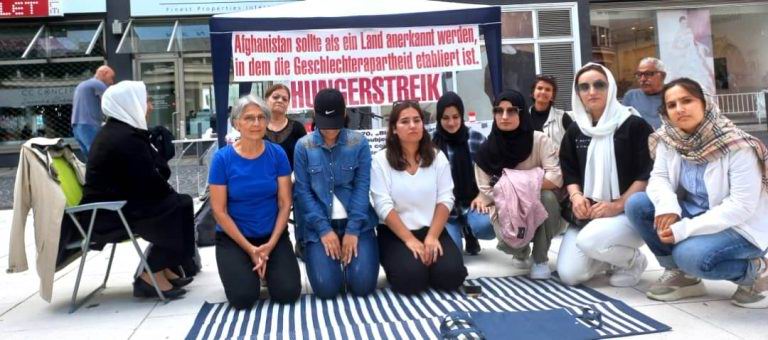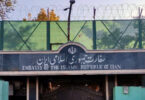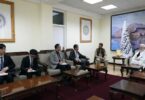KABUL (Khaama Press): Tamana Zaryab Paryani, an activist for women’s rights, along with several other women, has initiated a hunger strike due to global neglect of the situation of women in Afghanistan and what is referred to as gender apartheid. Despite feeling unwell on the fourth day of their strike, they emphasize their commitment to continuing the hunger strike. On the fourth day of the strike, Ms. Paryani said in an interview with Khaama Press News Agency that the world has been unsuccessful in defending women’s rights in Afghanistan. While women are fighting and sacrificing for their freedoms, the world has engaged with the interim administration. Ms Paryani is a former detainee of the Taliban administration and has experienced being imprisoned under their rule. She explains the reasons for setting up the protest camp and going on a hunger strike: “We demand justice due to increased travel, Taliban’s international outreach, funds sent to Afghanistan, and the neglect of gender rights despite ongoing oppression.” Four days have passed since the hunger strike of Tamana Zaryab Paryani and some women’s rights activists. Their condition on the fourth day of the hunger strike is not good. If the German government and the global community do not pay attention to their demand regarding the situation of women in Afghanistan, this strike will continue for another eight days, until September 12. The health condition of Ms Paryani and her companion is not very good. The audio recordings she sent to Khaama Press News Agency indicate that their health situation on the fourth consecutive day of the hunger strike is not good. She continues sharing a video of herself inside the sit-in tent, confessing that she and her companions’ conditions are not very good. The current situation in Afghanistan, especially for women, is described as “horrifying,” emphasizing that remaining silent in the face of such oppression and heinous crimes is shameful. According to her, the institutions expected to raise their voices have not yet paid attention to their demands. Ms. Paryani calls on other women in Afghanistan not to remain silent in the face of the human rights abuses occurring under the rule of the Taliban in Afghanistan. She believes that the fundamental rights of people, especially women’s rights, are violated without any shame, and silence in the face of this is a sign of society’s human and moral decline. Other women’s rights activists have welcomed Ms. Paryani’s protest and are demanding its expansion within and outside Afghanistan. Taranum Saeedi, a women’s rights activist in Afghanistan, also supports Mrs. Paryani’s protest, saying that these protests will continue until September 12 in Germany and various other countries. Ms. Saeedi emphasizes the effective continuation of women’s persistence for their rights and highlights that the most significant achievement of women’s struggle in the past two years has been the global non-recognition of the Taliban regime. She has asked the German government for support in the case of Ms Paryani’s struggle, saying that women have faced significant deprivation in the past two years and have been systematically excluded from society. During the past two years, women have been subjected to widespread deprivations, including bans on education, work, and political and social activities in the country, leading to their isolation and prompting the global community to repeatedly call for lifting restrictions on women. Other women’s rights activists standing alongside Ms. Paryani urge the international community to recognize “gender apartheid” in Afghanistan. Gender apartheid was first used by the head of Afghanistan’s permanent mission to the United Nations to highlight the depth of anti-women practices in Afghanistan. Later, instances of it were reflected in Richard Ben’s report.







